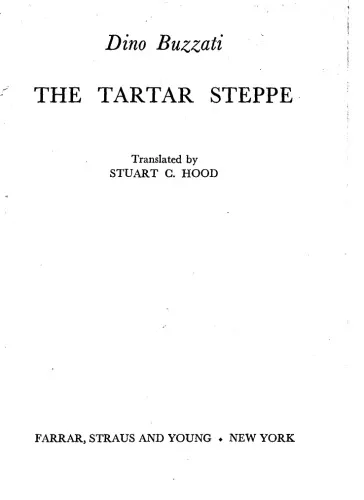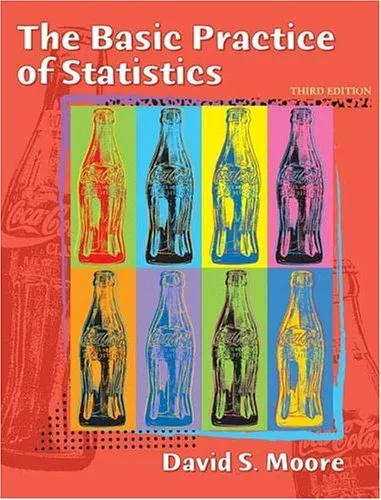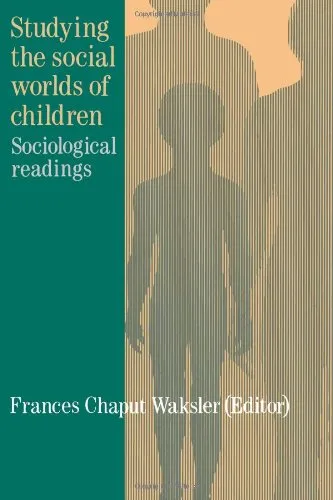The Leopard by Giuseppe Tomasi Di Lampedusa (Book Analysis): Detailed Summary, Analysis and Reading Guide
4.3
بر اساس نظر کاربران

شما میتونید سوالاتتون در باره کتاب رو از هوش مصنوعیش بعد از ورود بپرسید
هر دانلود یا پرسش از هوش مصنوعی 2 امتیاز لازم دارد، برای بدست آوردن امتیاز رایگان، به صفحه ی راهنمای امتیازات سر بزنید و یک سری کار ارزشمند انجام بدینکتاب های مرتبط:
مقدمهای بر کتاب "The Leopard"
کتاب "The Leopard" نوشته جوزپه تومازی دی لامپدوزا، یک اثر برجسته ادبیات ایتالیایی به شمار میرود که از دیدگاه تاریخی و فرهنگی بسیار حائز اهمیت است. این کتاب در سال ۱۹۵۸ پس از مرگ نویسنده منتشر شد و به سرعت جایگاه ویژهای در میان آثار کلاسیک یافت. "The Leopard" به تجزیه و تحلیل تغییرات اجتماعی و سیاسی در سیسیل طی دوران Risorgimento میپردازد و از این رو به یکی از مهمترین رمانهای تاریخی قرن بیستم تبدیل شده است.
خلاصه کتاب
داستان "The Leopard" حول زندگی شاهزادهای به نام فابریزیو کوربِرا، شاهزادهی سالینا، میچرخد که در طول تحولات اجتماعی و سیاسی ایتالیا، با واقعیتهای جدید مواجه میشود. شاهزاده که نمایندهای از یک طبقه اشرافی قدیمی است، تلاش میکند تا جایگاه و احترام خود را در دنیای در حال تغییر حفظ کند. داستان به بررسی چالشهای او و برخوردهایش با خانواده، دوستان و فضای اجتماعی-سیاسی آن زمان میپردازد.
نکات کلیدی
- تحلیل اجتماعی: این کتاب به دقت به بررسی ساختار اجتماعی سیسیل و تأثیر تغییرات سیاسی بر آن میپردازد.
- تحولات تاریخی: اشاره به دورهای مهم از تاریخ ایتالیا و بررسی اثرات آن بر جامعه.
- رابطه انسان و زمان: بررسی قدرت و ناتوانی فرد در برابر جریانهای اجتنابناپذیر زمان.
جملات معروف از کتاب
"اگر ما میخواهیم همه چیز همانطور که هست باقی بماند، همه چیز باید تغییر کند."
"چقدر عجله دارید! زمان باید کمترین نگرانی ما باشد."
چرا این کتاب مهم است؟
"The Leopard" نه تنها به علت عمق تحلیل و دقت تاریخیاش بلکه به دلیل نثر زیبا و شخصیتپردازی استادانهاش، یکی از مهمترین آثار ادبیات ایتالیایی است. این کتاب به خوانندگان دیدگاهی گسترده و جامع از تغییرات اجتماعی-سیاسی یک دورهی حساس میدهد و در عین حال مفهوم زوال و مقاومت در برابر تغییرات اجتنابناپذیر را به شیوهای تأثیرگذار به تصویر میکشد. علاوه بر این، "The Leopard" با دیدی فلسفی به موضوعاتی مانند مرگ، زمان و تغییر میپردازد که همچنان برای خوانندگان امروزی جذاب است.
Welcome to our comprehensive guide to The Leopard by Giuseppe Tomasi Di Lampedusa. This insightful book analysis will provide you with a detailed summary, exploration of key themes and takeaways, memorable quotes, and insights into why this literary masterpiece holds significant value in literature. Our aim is to enhance your understanding and appreciation of this classic novel, allowing you to fully grasp its intricate narrative and profound themes.
Detailed Summary of the Book
The Leopard, originally published in 1958, is a powerful historical novel that captures the complexities of change and continuity through the story of the Salina family, an aristocratic Sicilian dynasty in decline. Set during the Risorgimento, the period of Italian unification in the 19th century, the novel explores the impact of socio-political upheaval on traditional structures. The protagonist, Prince Fabrizio Salina, symbolizes the old aristocratic order, struggling to maintain relevance and stature as the winds of change blow through Sicily.
Throughout this detailed narrative, readers are invited into Fabrizio's introspective world as he contemplates mortality, societal evolution, and personal legacy. The novel adeptly portrays the tension between the old and the new, vividly illustrating how societal transformations resonate on a personal level. Lampedusa's evocative prose paints a rich tapestry of Sicilian landscape and culture, while imbuing characters with depth and complexity, making The Leopard a compelling exploration of existentialism and the inexorable march of time.
Key Takeaways
- The inevitability of change: The novel underscores the inescapability of change and adaptation, emphasizing that those who resist are often left behind.
- The decline of aristocracy: Through Prince Fabrizio’s decline, the novel highlights the fading power and influence of the aristocratic class in the face of modernity.
- Mortality and legacy: Reflecting on human mortality and the desire to leave a lasting legacy are central themes examined through the prince's inner reflections.
- Cultural identity and conflict: The novel intricately explores the tensions within Sicilian society, caught between its rich heritage and the push towards unification and progression.
Famous Quotes from the Book
Here are some notable quotes from The Leopard that encapsulate its essence and thematic richness:
"If we want things to stay as they are, things will have to change."
"The Sicilians never want to improve for the simple reason that they think themselves perfect."
Why This Book Matters
The Leopard is more than just a work of historical fiction; it is a profound commentary on the human condition, social change, and the cyclical nature of history. Its inclusion in the canon of world literature is a testament to its enduring relevance and literary brilliance. The author's nuanced exploration of themes such as power, legacy, and existentialism resonates as strongly today as it did upon publication.
The novel's influence stretches beyond literature, impacting cultural and intellectual thought. Its penetrating insights into personal and societal evolution make it a vital text for understanding the complexities of identity and transformation. The depth of its character portrayals, the beauty of its language, and the timelessness of its themes ensure that The Leopard remains a pivotal work that challenges and enlightens readers, offering fresh insights with each re-reading.
دانلود رایگان مستقیم
شما میتونید سوالاتتون در باره کتاب رو از هوش مصنوعیش بعد از ورود بپرسید
دسترسی به کتابها از طریق پلتفرمهای قانونی و کتابخانههای عمومی نه تنها از حقوق نویسندگان و ناشران حمایت میکند، بلکه به پایداری فرهنگ کتابخوانی نیز کمک میرساند. پیش از دانلود، لحظهای به بررسی این گزینهها فکر کنید.
این کتاب رو در پلتفرم های دیگه ببینید
WorldCat به شما کمک میکنه تا کتاب ها رو در کتابخانه های سراسر دنیا پیدا کنید
امتیازها، نظرات تخصصی و صحبت ها درباره کتاب را در Goodreads ببینید
کتابهای کمیاب یا دست دوم را در AbeBooks پیدا کنید و بخرید
1533
بازدید4.3
امتیاز0
نظر98%
رضایتنظرات:
4.3
بر اساس 0 نظر کاربران
Questions & Answers
Ask questions about this book or help others by answering
No questions yet. Be the first to ask!















